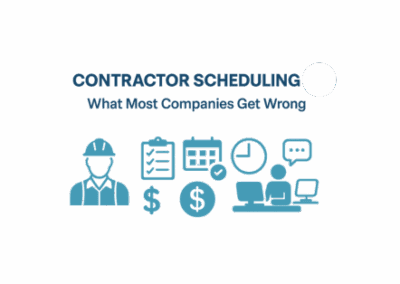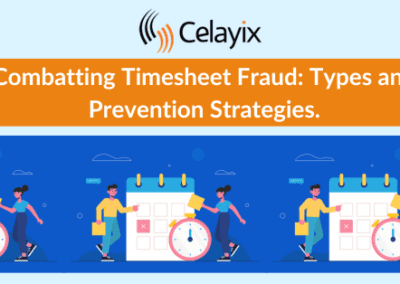The home healthcare industry is one of the fastest-growing industries in the last decade or so. In 2019, National home health spending soared to a whopping $113.5 billion, according to analysis from the Centers for Medicare & Medicaid Services (CMS) Office. However, given the fraudulent nature of the sector, the US Government has taken action to help regulate claims.
Electronic Visit Verification (EVV) falls under the 21st Century Cures Act, which was signed into law in 2016 in the US. It requires state agencies to implement a system of EVV for their services. This covers personal care services and home health care services provided and reimbursed under Medicaid. Under the mandate, all states must require EVV from all home healthcare service providers by January 1st, 2023.
Why is EVV required?
There are 2 main objectives of the EVV mandate;
Care as Promised

The first purpose of the EVV mandate is to ensure that people get the care they are promised. Currently, there is a huge problem within the home healthcare industry with patients not receiving the care they need. EVV will increase the accountability of caregivers ensuring that the right care is being delivered when and where it is invoiced for.
Reduce Fraud
EVV will also help to minimize fraudulent care claims. The National Heath Care Anti-Fraud Association estimates conservatively that health care fraud costs the nation about $68 billion annually. Although there has been debate from home healthcare providers as to whether EVV will help or hinder the industry, the potential savings to the economy cannot be ignored.
What Data does EVV Capture?
Considering the objectives of EVV, there is a lot of information that would be required to achieve these goals. EVV requires that the healthcare provider electronically captures the following information for all home visits;






Essentially, it creates a digital record of the home care visit. This information is then forwarded to the CMS in order to verify that reported visits are actually happening.
How is EVV mandated?
It is important to note that EVV is mandated on a state-by-state basis. Home care providers must follow the guidelines as set out by their respective states, and there are currently five types of models being used.
Open Vendor: The state selects an EVV vendor and data aggregator. Providers can use a state-sponsored vendor free of charge, or work with another EVV vendor at their own expense. Alternative EVV vendors must integrate with the state’s data aggregator.
State Mandated External Vendor: Providers must use the state-sponsored, state-funded vendor.
State Mandated In-House System: State’s build their own EVV system, which all providers must use/integrate with.
Provider Choice: Providers select and pay for their own vendors.
MCO Choice: Managed Care Organizations select the vendor and cover the costs.
If you’re unsure what model your state/organization is using, we’ve got you covered here, or we recommend checking in with your state health department or the relative bodies.
When Will EVV be a Requirement?
For the home healthcare industry, states must require EVV by January 1st, 2023. Otherwise, the state is subject to incremental FMAP reductions up to 1% unless the state has both made a “good faith effort” to comply and has encountered “unavoidable delays.”
Although this is a relatively new mandate, some home healthcare providers have been using EVV for some time now. For the most part, agencies that have introduced EVV have seen great benefits such as increased productivity, huge time savings, and improved accuracy in reporting and other areas. If your state works on a provider choice model for EVV, we suggest getting a system in place as soon as possible, so that you can experience these benefits sooner rather than later.
How to Get Started with EVV
1) Define your requirements
The first step in any large business decision such as implementing new software is to outline your requirements. This is crucial to ensure that potential vendors meet your needs, in order to avoid back tracking or delays. As mentioned above, you need software that can electronically capture the necessary data points. You also need to ensure that the data is easy to extract in order to report it to CMS in the necessary output. As important as the data capture itself is, the reporting is equally is also essential.
2) Research multiple vendors
It is crucial to research and review multiple vendors to ensure you’re getting the solution that best fits your business. The requirements that you have laid out in step 1 will guide you in your search and should act as a checklist to ensure you are engaging with vendors that will meet, and potentially exceed your requirements.
3) Request Demos
Most software vendors should offer a free demo that would highlight the features and functionality that you are looking for. Be sure to use the time during the demo to ask important questions and raise any concerns you may have.
4) Consider all potential implications
An important factor for all agencies to consider is how well an EVV system will integrate with your existing systems. Consider the effects for payroll, billing and invoicing and how all of your systems will work together. Choosing new software for an organization can be a complex process, so take time to consider any other implications.
On the other side of the coin, if you are looking for an EVV provider, you could consider looking for a system that would bring added benefits/functionality to your organization such as scheduling, time, and attendance solutions like Celayix. If you have any questions about Celayix’s capabilities and compliance with EVV, get in touch with a solution advisor today!




